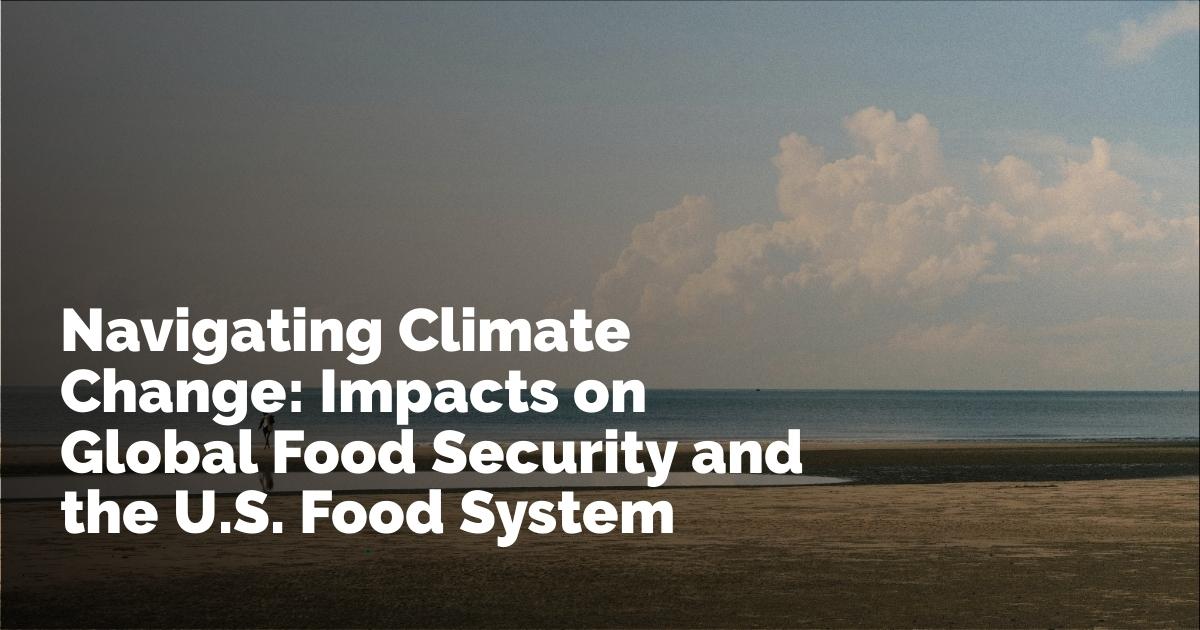Climate Change and the Threat to Global Food Security
One of the most pressing issues facing the global community today is the impact of climate change on food security. As our planet continues to experience unprecedented changes in climate patterns, the delicate balance that sustains food systems around the world is facing numerous challenges. This shift is likely to impede progress towards achieving global food security, adversely affecting the availability and accessibility of food.
Understanding Food Security and Climate Change
The concept of food security encompasses four main areas: food availability, access, utilization, and the stability of these components over time. Each of these factors plays a crucial role in ensuring that populations have regular access to sufficient, safe, and nutritious food, essential to leading healthy lives.
Climate change has the potential to undermine each element of food security. Production disruptions caused by extreme weather events, shifting agricultural zones due to temperature variations, and erratic rainfall patterns directly impact food availability. These factors can lead to reduced crop yields and livestock productivity, directly affecting local food supplies.
Challenges in Food Access and Utilization
Beyond availability, climate change can also influence food access and utilization. Rising prices due to scarcity or transportation disruptions can place essential food items out of reach for many, worsening food inequities among diverse population groups. This economic strain is often exacerbated in regions that are already vulnerable, lacking the infrastructural resilience to absorb such shocks.
Moreover, food utilization, which refers to the way individuals' bodies absorb nutrients from the food they consume, can also be affected. Climate-induced changes in resource quality, such as soil degradation and water scarcity, may diminish the nutritional content of food, impacting dietary needs and public health.
Transport and Storage Disruptions
Transport conduits, which are critical for moving food from areas of surplus to regions where it is needed, can also be compromised by climate events. Road, rail, and maritime networks are vulnerable to flooding, hurricanes, and even droughts, exacerbating food deserts and contributing to spoilage during transit.
Additionally, the stability and safety of stored food supplies can be threatened by increased temperatures and humidity, leading to greater occurrences of foodborne diseases and spoilage. These factors collectively pose significant risks to both food security and safety, further complicating efforts to maintain a stable food system.
The U.S. Food System in Focus
The U.S. food system is not immune to these global challenges and must contend with the multipronged threats posed by climate change. Being a significant player in global food production and trade, interruptions within the U.S. can have far-reaching consequences. As climate events become more frequent and severe, the vulnerabilities within the U.S. agricultural sector, ranging from crop production to food distribution logistics, are brought to the fore.
Scientific Assessments and Policy Implications
"Climate Change, Global Food Security, and the U.S. Food System" is a peer-reviewed scientific assessment that offers an in-depth analysis of these issues. This assessment aims to provide a comprehensive understanding of how climate change is altering food security landscapes both domestically and globally. By contributing to the U.S. National Climate Assessment, it seeks to inform policy decisions that can foster resilience and adaptation in the face of climatic uncertainties.
In conclusion, addressing the challenges posed by climate change to food security requires global cooperation and comprehensive strategies. It involves the integration of scientific research into policy frameworks, fostering innovations in sustainable agriculture, and reinforcing infrastructure to protect food distribution systems. As stakeholders from various sectors come together to tackle these issues, a cooperative approach will be imperative to ensure that food security can be sustained in this era of climate change.
출처 : Original Source

